 On this Sunday, we commemorate three men who had a relationship with Jesus: David, his forefather; Joseph, his foster father; and James, his brother through Joseph. Each of these man were shown mercy by God. David committed a great sin, to win the wife of Uriah, he had Uriah put into the front lines of battle, so that he was killed. The prophet Nathan brought this sin to light and David did repentance and lost his son. Joseph found Mary pregnant and decided to divorce her, but an angel told him to take her as his wife. James was among Jesus’ relatives who did not accept him as a prophet, but after the resurrection, he repented and became the leader of the church at Jerusalem.
On this Sunday, we commemorate three men who had a relationship with Jesus: David, his forefather; Joseph, his foster father; and James, his brother through Joseph. Each of these man were shown mercy by God. David committed a great sin, to win the wife of Uriah, he had Uriah put into the front lines of battle, so that he was killed. The prophet Nathan brought this sin to light and David did repentance and lost his son. Joseph found Mary pregnant and decided to divorce her, but an angel told him to take her as his wife. James was among Jesus’ relatives who did not accept him as a prophet, but after the resurrection, he repented and became the leader of the church at Jerusalem.
We might remember also three women who were among Jesus’ foremothers. Rachel was the wife of Jacob, who loved her more than Leah. However, when Jacob worked for seven years for Laban to win Rachel’s hand, Laban insisted he marry his eldest daughter Leah. Jacob then worked another seven years for Rachel. However, Rachel was barren until finally she gave birth to Joseph, Jacob’s favorite son. Jacob took his family and fled Laban, and Rachel stole Laban’s family icons. When Laban caught up with Jacob, Jacob cursed the thief of his icons, not knowing that it was his beloved wife Rachel. The curse was fulfilled when Rachel died giving birth to Benjamin. Rachel is mentioned in today’s Gospel as weeping when the children of Bethlehem are massacred by King Herod, but the gospel says, “no comfort for her, for they are no more.”
We might also mention Ruth, who was a foreigner – like the Magi. She married a Hebrew man from Bethlehem who died, and Ruth followed her mother-in-law back to Bethlehem, and there tricked Boaz into marriage, becoming the great-grandmother of David and ancestor of our Lord. We might also mention Tamar, who lost her husband, whose brother refused to have children by her. She disguised herself as a prostitute and became pregnant with her father-in-law, Judah, who wanted to have her executed for prostitution until he was shown to be the father. So she, too, became an ancestor of Jesus through trickery. Does not today’s feast remind us that we all have a relationship now with God through our Lord Jesus Christ and we are all in need of his mercy.
Meditation by Archpriest David Petras
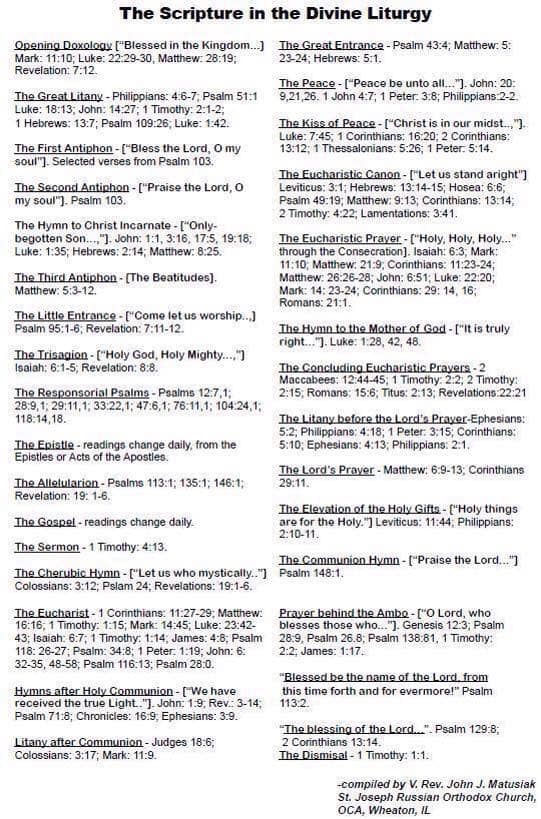
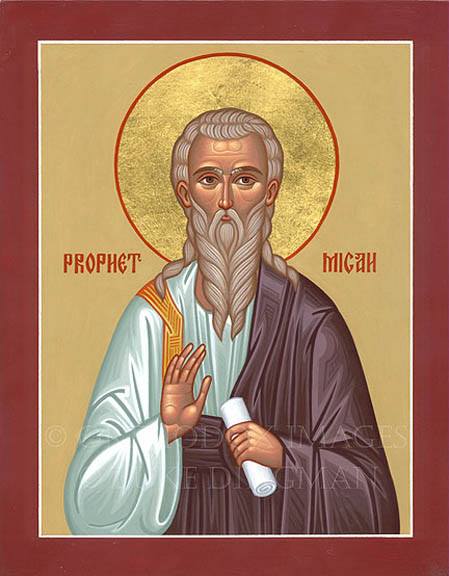 Micah is the final prophet whose memory we celebrate in the Feast of Light. However, in many of his prophecies, he speaks out of darkness. He was an ancient prophet, of whom Jeremiah says: ““Micah of Moresheth used to prophesy in the days of Hezekiah, king of Judah, and he said to all the people of Judah: Thus says the Lord of hosts: Zion shall be plowed as a field, Jerusalem, a heap of ruins, and the temple mount, a forest ridge” (Jeremiah 26:18). Micah laments, in words that could be repeated in our own times: “The faithful have vanished from the earth, no mortal is just! They all lie in wait to shed blood, each one ensnares the other” (7:2). Yet for all that, he most clearly foretells the coming of the Prince of Peace.
Micah is the final prophet whose memory we celebrate in the Feast of Light. However, in many of his prophecies, he speaks out of darkness. He was an ancient prophet, of whom Jeremiah says: ““Micah of Moresheth used to prophesy in the days of Hezekiah, king of Judah, and he said to all the people of Judah: Thus says the Lord of hosts: Zion shall be plowed as a field, Jerusalem, a heap of ruins, and the temple mount, a forest ridge” (Jeremiah 26:18). Micah laments, in words that could be repeated in our own times: “The faithful have vanished from the earth, no mortal is just! They all lie in wait to shed blood, each one ensnares the other” (7:2). Yet for all that, he most clearly foretells the coming of the Prince of Peace.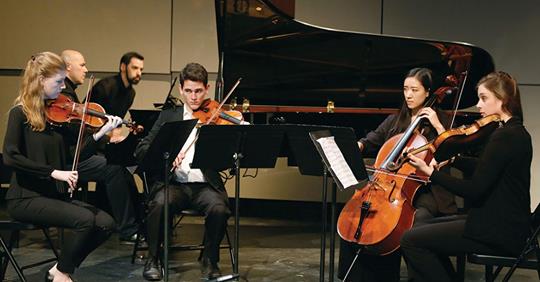 On Saturday, December 1, the University of New Haven hosted a very well-attended concert and public forum commemorating the 85th anniversary of the Holodomor and the fifth anniversary of the Maidan Revolution of Dignity.
On Saturday, December 1, the University of New Haven hosted a very well-attended concert and public forum commemorating the 85th anniversary of the Holodomor and the fifth anniversary of the Maidan Revolution of Dignity.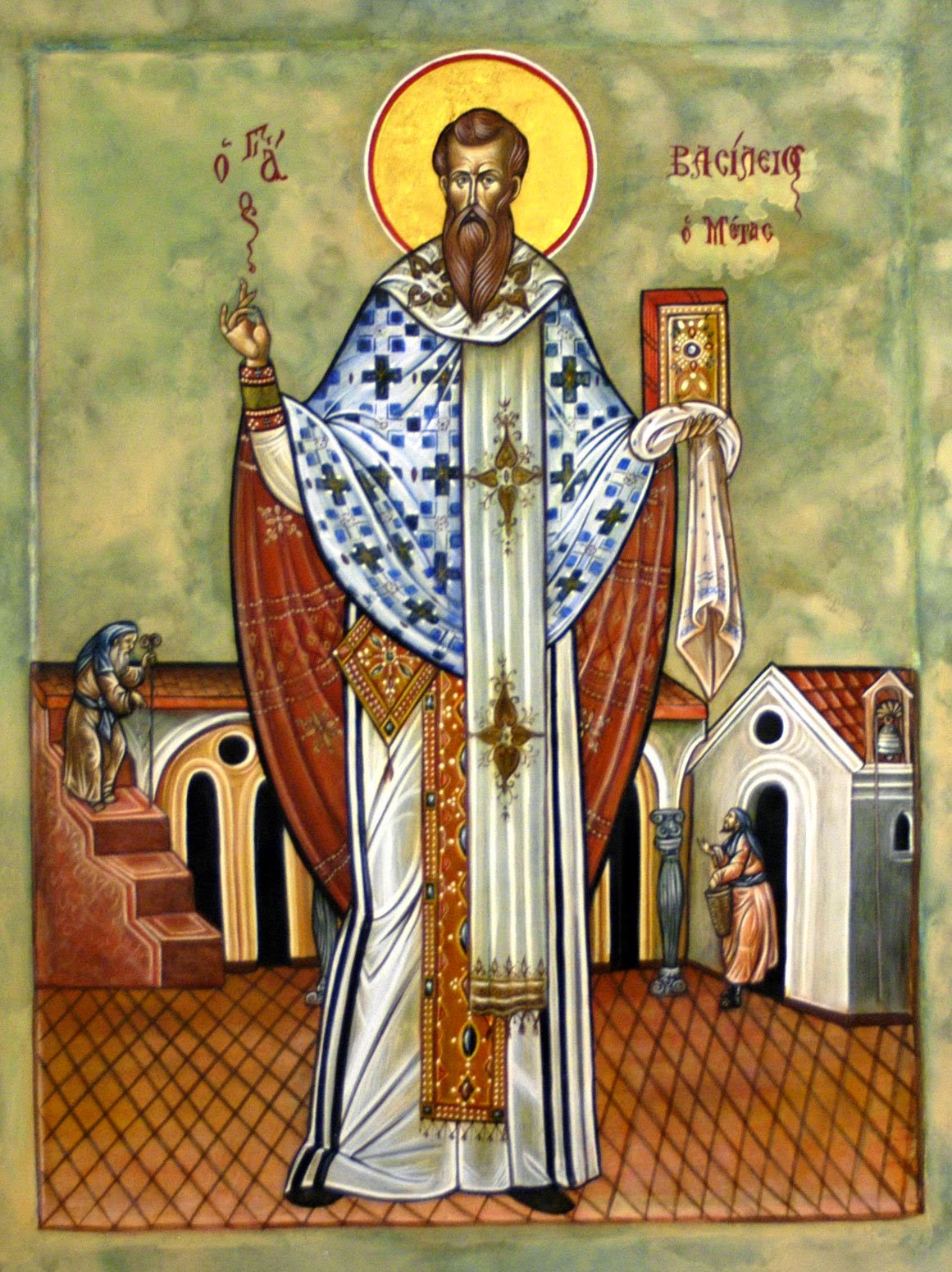 A blessed new year to all of you! Christ is born! Happy 2019!!!
A blessed new year to all of you! Christ is born! Happy 2019!!!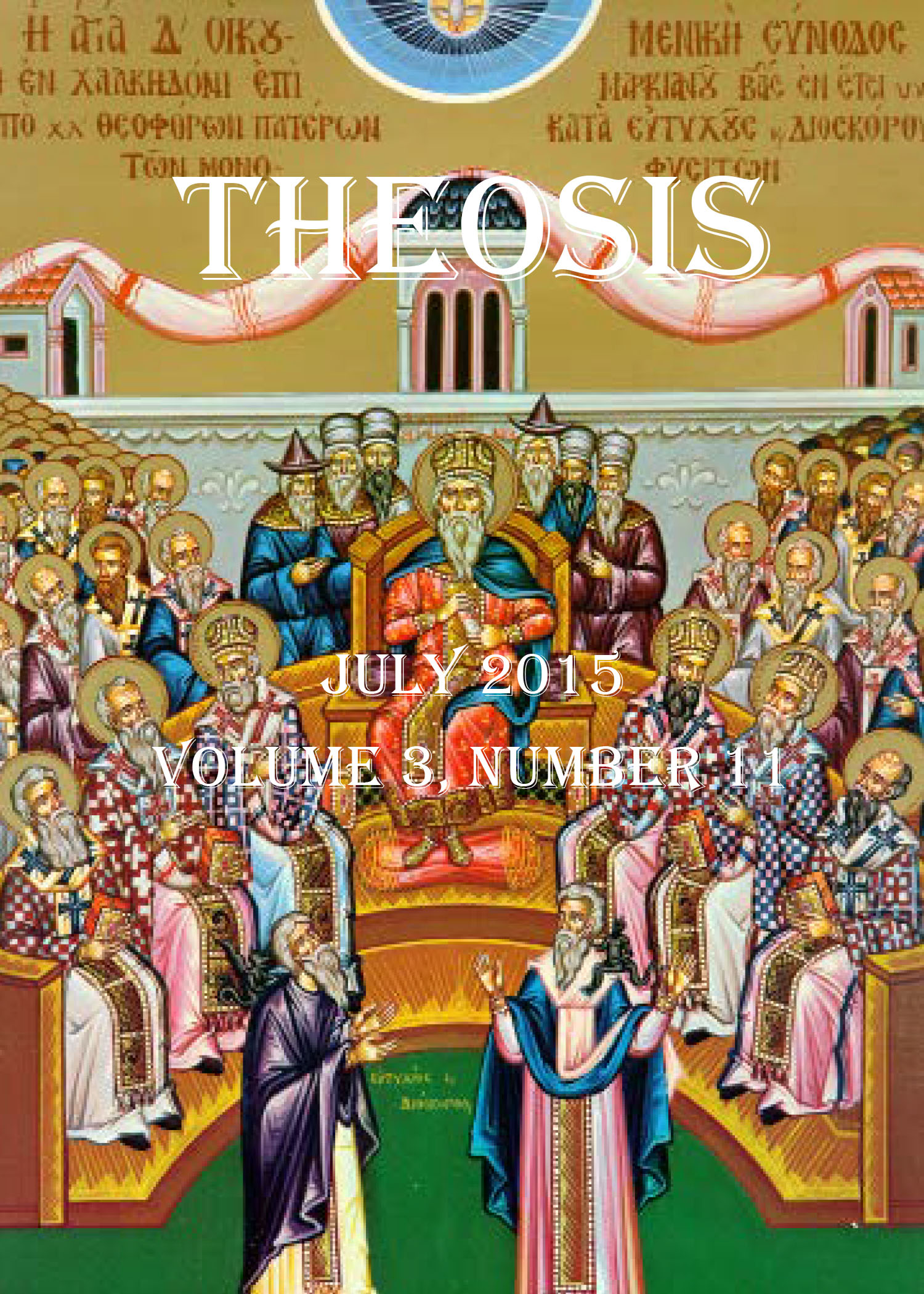
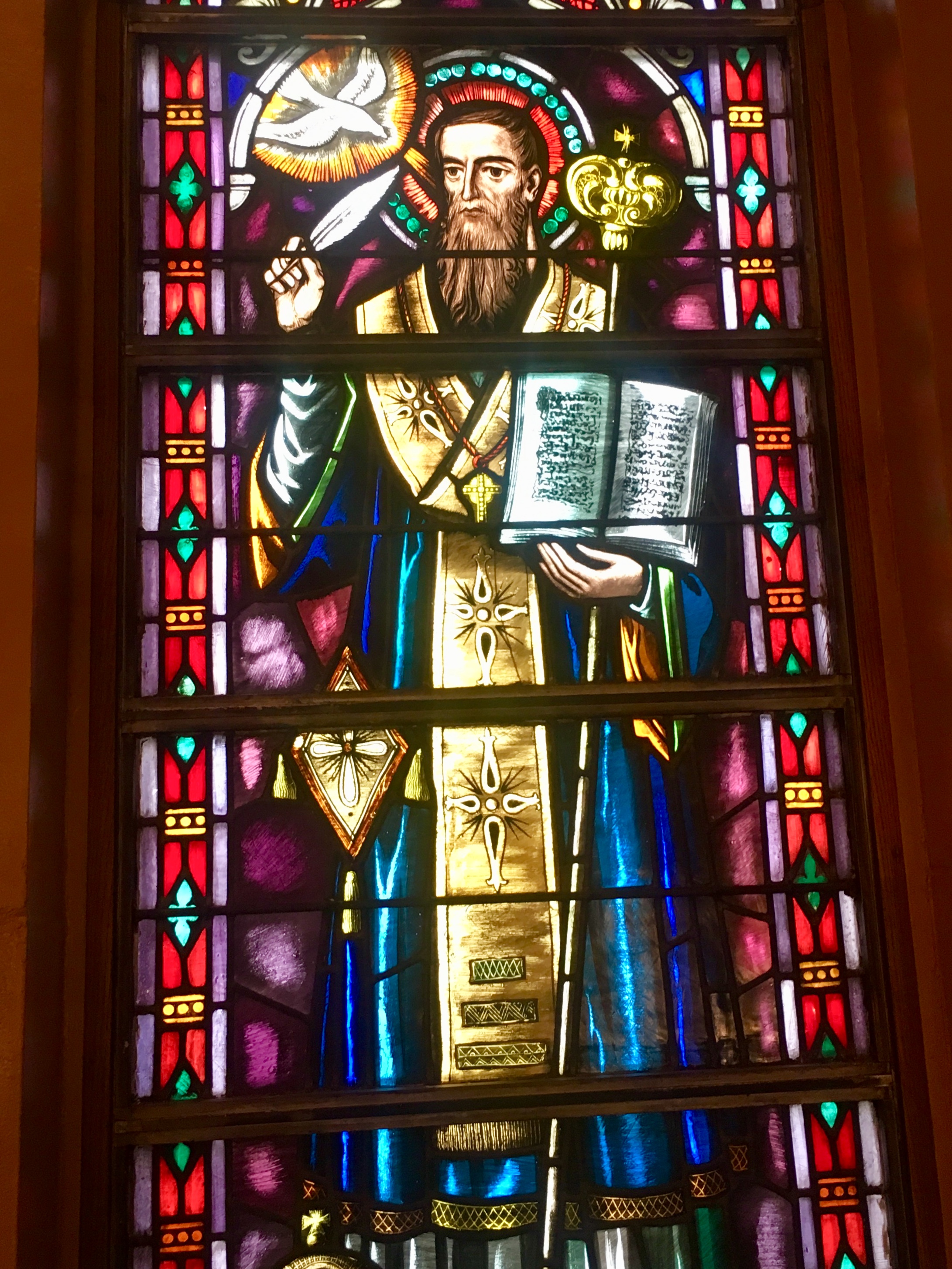 Divine Liturgy on January 1, New Year’s Day. On Tuesday, we liturgically remember that 8 days ago we celebrated Christmas. Today according to Jewish custom, we recall Jesus underwent the Circumcision.
Divine Liturgy on January 1, New Year’s Day. On Tuesday, we liturgically remember that 8 days ago we celebrated Christmas. Today according to Jewish custom, we recall Jesus underwent the Circumcision. On this Sunday, we commemorate three men who had a relationship with Jesus: David, his forefather; Joseph, his foster father; and James, his brother through Joseph. Each of these man were shown mercy by God. David committed a great sin, to win the wife of Uriah, he had Uriah put into the front lines of battle, so that he was killed. The prophet Nathan brought this sin to light and David did repentance and lost his son. Joseph found Mary pregnant and decided to divorce her, but an angel told him to take her as his wife. James was among Jesus’ relatives who did not accept him as a prophet, but after the resurrection, he repented and became the leader of the church at Jerusalem.
On this Sunday, we commemorate three men who had a relationship with Jesus: David, his forefather; Joseph, his foster father; and James, his brother through Joseph. Each of these man were shown mercy by God. David committed a great sin, to win the wife of Uriah, he had Uriah put into the front lines of battle, so that he was killed. The prophet Nathan brought this sin to light and David did repentance and lost his son. Joseph found Mary pregnant and decided to divorce her, but an angel told him to take her as his wife. James was among Jesus’ relatives who did not accept him as a prophet, but after the resurrection, he repented and became the leader of the church at Jerusalem.